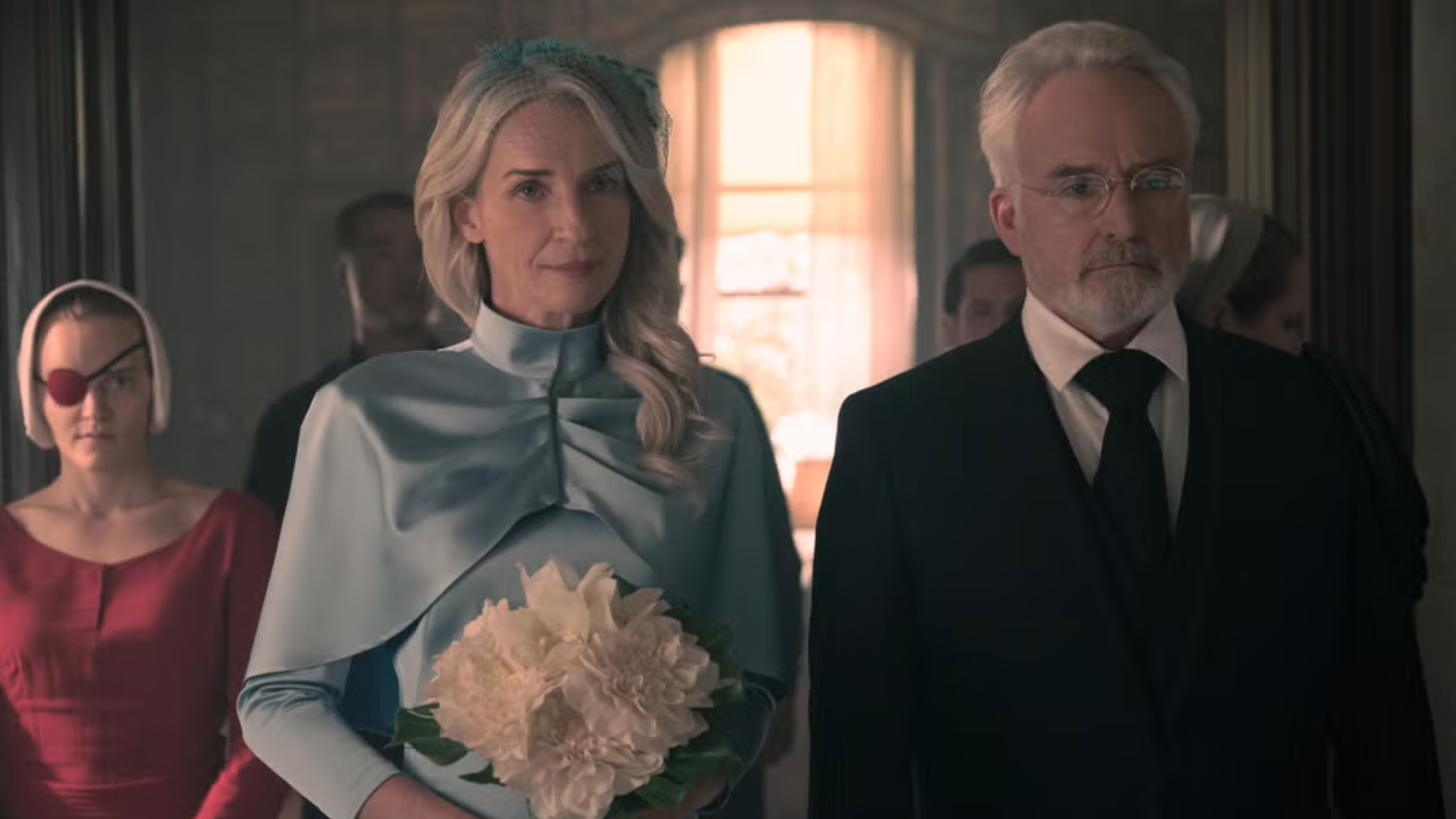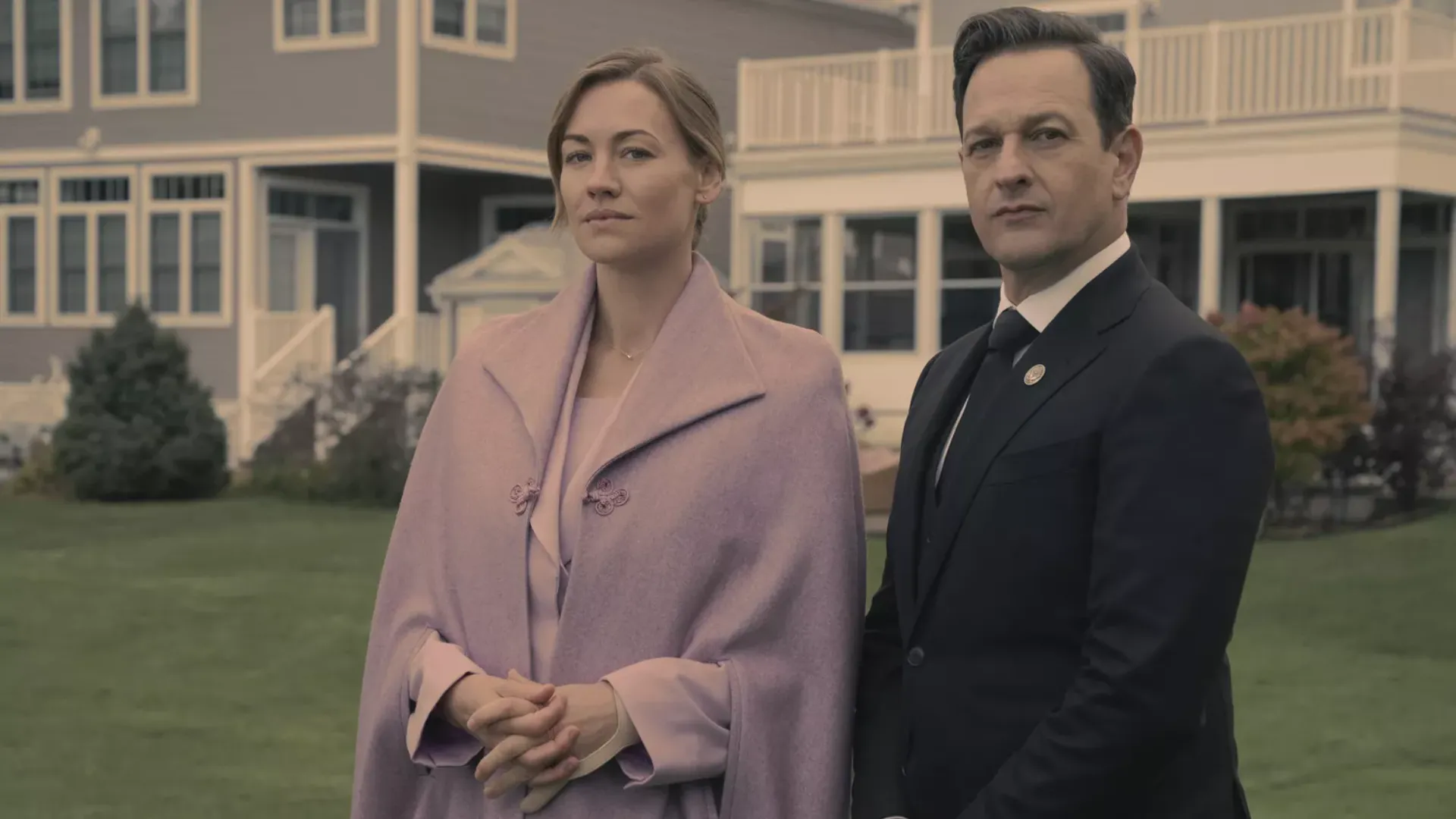
The Handmaid's Tale season 6 is well underway, and as usual, fans are dissecting every moment of the show. So far, the mysterious New Bethlehem has been the topic of intense discussion - the picturesque settlement seems too good to be true, and it's looking very much like this is the case...
There's much chatter about June's ultimate end game and whether she'll get Hannah back by the end of season 6, while many viewers have been wondering what happens to Emily. The fan favourite former Handmaid was last seen heading off to fight for the resistance and viewers need to know what became of her.
Something else piquing the interest of those tuning in this season is the idea and mention of virility within the show. Following a conversation between Commander and Naomi Lawrence about the subject, we take a look at what virility means within The Handmaid's Tale.
What does virility mean in The Handmaid's Tale?
Viewers became interested in the concept of virility when Naomi Lawrence (formerly Putnam) becomes angry when her new husband, Commander Lawrence, pulls away from a kiss she initiates.
Neither particularly wants to be married to the other, as Commander Lawrence is still dedicated to his first wife and true love, Eleanor. Naomi was left a widow after her vile husband Warren was shot in the head by Nick after raping Esther Keyes, and Gilead doesn't like widows so the pair got together for convenience.
But it seems Naomi is at least trying to give the marriage a chance, while Commander Lawrence is having none of it. After her advances were rebuffed, just before her husband was about to be sworn in as High Commander of Gilead, she throws him the put down, "They derive their sense of power from their virility."
The dictionary definition of virility describes a man who has the qualities of strength, energy, and a strong sex drive - qualities that might equate to the concept of 'manliness.'
Naomi was indicating to her husband that to impress the other Commanders and High Commanders, he'd need to put on the same display of virility and the qualities associated with the definition as they do - this would mean having sex with their wives and Handmaids, and frequenting Jezebels to sleep with prostitutes.
Knowing this behaviour would make him uncomfortable, she was trying to gain the upper hand by challenging his virility and suggesting he'd feel less of a man around the other guys. Ironically, these are behaviours Gilead claims to find despicable.
Of course, the male Gilead elite believe they are exempt from what they claim to have overthrown, which is a society living for hedonism and living immoral lives. Handmaids have been given this position because they previously had sex or children outside of wedlock, or, like June, had an affair with a married man.
The nation tries to put on a display suggesting there are consequences for lust, greed, and perceived dishonourable acts. Except, it's only really women that this applies to, and some low-standing men.

Gilead's high-ranking men would likely genuinely believe they are so close to God they have been selected to act in any way they choose, and a lot of this behaviour demonstrates a level of so-called virility. Or for the sake of the show, intense toxic masculinity.
In understanding that acting this way would make her husband uncomfortable, she attempts the double blow of not only suggesting he needs to act in a certain way to fit in, but also that he'd be expected to put on a virile performance against his will, in a world he created.
Some could perceive virility in the context of the series as the ability to father children, and there certainly is an element of that. However, The Handmaid's Tale also demonstrates virility to be the extreme patriarchal dominance over women and keeping the nation on a tight leash.

But we know Commander Lawrence, and we know he would never be antagonised into doing something he didn't want to do, no matter how much of a part he played in the architecture of the country he's come to feel some guilt about.
In his signature, confident manner, Lawrence was not going to let Naomi belittle him, have the last word or let something like virility knock his faith in himself. He simply finished their conversation with the parting line, "Power will come from reform. They know I’m their man."
This suggests he knows still holds all the cards, whether he acts in the expected virile way or not.







